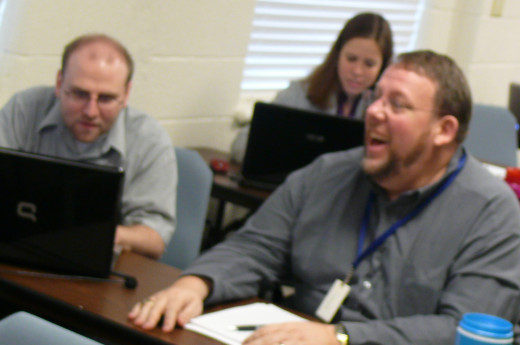How to write college application essays: 10 tips

Lately, I've been working with private clients on how to write a college admission essay. Having written one in my life, and having helped others do it, I can tell you they are not straightforward documents to write. There's a lot riding on them, and yours will be one of the most significant documents you write in your life. Like many documents, you need to practice the elements of good writing. For example know who your audience is, understand the purpose of your document, and be sure it is well-organized, well-written, and error-free. Here, then are some more specific tips on how to write your college admission essay.
Your admission essay is a process
Don't expect to write your admission essay in one sitting. You will have to go through some reflection, and some drafting before your submission is just right for you (and, of course you want to be just right), so it will portray you at your best.
Don't write your whole life story - Your college admissions essay should be selective, conveying the most relevant pithy details about your life, schooling and work that are most focused to the program you are applying for. Certainly, they will be biographical, but biography doesn't mean opening up the floodgates and letting it all hang out. Instead, think of it as a vocational narrative that weaves important elements of your past and present with your future academic, personal interests and work goals. Remember, you are trying to convince the reader that you are the right fit for the school and program.

Organizing and writing your admission essay
Organizational patterns.
Consider your admission essay a type of personal narrative. As you know, there are different ways to organize your essay. One common sequencing pattern is chronological. You can relate different facets (relevant information) from your life, in sequence leading up to this time that you are applying.
You can also organize your essay by topic culling different relevant moments or accomplishments from school, internships, your interests, and extra-curricular involvements. For graduate students, often, you may need information on your work history if you have been out of school for a few years. Again, don't forget to focus on your very personal and professional reasons for applying to this program.
What details to include in your college application essay
Choose meaningful details. There are pieces of your life story that already pointed you in the direction of your goal. When I applied to journalism school, I wrote about my obsessive interest in current events, my avid interest and high grades in language and writing, and how I was always 'chronicling' (I kept journals from the time I was thirteen), about just about everything that was going on.
My brother who became a clergyman, wrote in his admission essay about the traumatic event of our middle brother's death from cancer, and how it enabled him to be able to counsel and comfort people in distress and how it contributed to his spiritual understanding of life. These are things that get the reader's attention.
Portray yourself as a well-rounded person. Describing yourself as a multi-faceted person is also important. As a young cousin mentioned to me, it's not just enough to be good in school these days. So if you have an interesting hobby, if you are involved in the arts (dance or music for example), if you have been active in youth or community groups, then mention all these. Especially mention the activities that you shine in.
A client applying for a graduate business/law program has worked internationally with the UNDP. That's an intriguing piece of information considering that much of business operates as part of a global economy. Another client is writing about her involvement as a volunteer blogger and videographer for a community-based arts organization. She is interested in doing community work and studying sociology.
Mention internships and past employment. If you have already had internships, mention them, especially if they are relevant to your goal. If your internships or work experience is not 100% related, you have no doubt developed some transferable skills, learned some lessons and grown. Something in that experience is relevant to who you are and your education goals
Choose relevant details. These need to be focused to your academic goal. For instance, a client who was interested in Medical school admission essay mentioned how coming from a medical family influenced her interest in medicine from the time she was a child. It affected how she chose to volunteer her time, (in hospitals), what she studied (science), and ultimately her career goals.
Addressing barriers such as low grades or disabilities
If your grades in high school or in were somewhat low, consider addressing that in your application essay. Were there unusual circumstances? Were you also the class president? Were you working part-time, and encountering some especially difficult circumstances in your home life? In the case of some older students, their younger years weren't the time they shone in life. But if your life experience has led you to learning, insight, and accomplishment address those in your letter.
I was not a stellar undergraduate student. I had a lot of personal turmoil in my younger years, but settled down as I got older, wrote many articles, had a number of professional accomplishments and took a number of professional certificates at colleges, and a few non-program graduate courses (all of which I got A grades in ). I mentioned these in my graduate school application and I learned later the school was interested in three things: my motivation, my work goals, and my suitability for graduate studies. I got accepted at a school.
For one application to a bridging program, my client is writing about dealing with a disability, and how she has learned to manage herself.
Write conversationally
When you want to engage your readers, then write conversationally. One way to do this is to actually dictate your essay. I have done this different ways with various writing tasks. Here are some suggestions:
1. Dragon Naturally speaking ( a dictate software, one of the best around).
2. Dictate into a digital voice recorder. Save your MP3. Transcribe it or hire someone on Fiverr.com to transcribe it for $5 for each 20 minutes segment.
3. Use the voice-to-text function on your iPad, Smartphone or tablet. I use this a lot for some of my writing, and find this an excellent tool for drafting short sections. I then upload the file (I use Polaris as a word processor) to Google Docs, then, I revise.

Revise
Look for places where you can add detail. Once, I reviewed an essay from someone wanting to get into an architectural technology program. She wrote about working on a project to create and build a wall but didn't say much else. That may seem small, and if you've got these 'small' events in your life, you will have to probe them further for more detail to write a good admission essay. Use the 5 W's and the H.
Get rid of places that offer too much irrelevant detail. Sometimes we are our own worst editors and attached to certain stories. If you have a long-winded story (it might still be relevant), you may need to cut it down. You can always say anything in fewer words. In some cases, your application essay will be just fine without the story. Remember, you will have a word limit. Once, I received an application from a guy who wanted to go into dentistry. His first draft was filled with a lot of syrupy events from childhood, and his story of immigrating to Canada Again, remember why you are writing your essay and stay focused.
Edit, Edit
This is a universal piece of advice I give in all my hubs on writing. Check, double check, triple check for typos, spelling and grammar errors. Have someone else read your essay. Read it yourself out loud to smooth out any rough areas.
Beginnings and endings
Use a strong beginning for your personal statement or application essay. In the magazine world we call it a lead. Your application is a narrative, so borrow the tools of narrative writing. A lead can start with a short description of a situation that reflects the theme of your essay...and that was the moment you realized...
It could be a moment of realization from a class where a professor did or said something which made you realize something valuable about what you wanted out your life, your career, your studies. It may be an experience you had while on a job or internship or your travels, or it could even be something from your personal life or family. A student wanting to study social work wrote about her family's dealing with the social welfare system while growing up.
In the ending, bring the strands of your essay to a close and look to the future. Make a final statement...so my life... my experience...my commitment to....my passion for. are all reasons why I want to apply for this program. With my studies in......I will support my goal(s) of......
More hubs for students
- How to write that
How to Write That. In this I will offer you here, articles, tutorials, advice, videos and tools to make your life easier. - How to write essay exams intelligently and do well
There is nothing that can provoke more fear and anxiety for some students than the prospect of writing essay exams. For some courses in college and university (especially Liberal Arts and English), they can mean the difference between passing and fai - How to Ace a take home exam-Nine tips for success
f you've just been assigned a take home exam and think that doing well on it will be a piece of cake, think again. Take home exams can be tricky. The advantage is that you are free of the stress of the exam room and all the issues around timed writin - Final exam anxiety-16 strategies to help college an...
If you're in college, you are probably writing or preparing for you final exams. There are some people who fall apart on exam day, some people who just want to leave quickly, and some people who are skilled at test taking and just know what to do. Ho - How to ask your professor for a reference letter
hether you are applying for an advanced degree or a job, asking your professor for a letter of reference is a crucial, if not difficult step. The right reference can mean the difference between being accepted and rejected. But requesting this importa - TOEIC vs TOEFL IBT
f English is not you're first language and you're planning to go to a university where instruction is English or to work for firm with a global presence, then you may find yourself confronting with having to take either a TOEFL test or a TOEIC test. - Tips on essay writing- Ten ways to avoid losing mark...
It's essay time at the colleges and universities. And if you are like most students, you're juggling the pressures of the end of term while trying to get a good grade on your paper. As a college instructor who has graded many thousands of papers and - Six reasons why students fail in first term college
For many students, first term college heralds a new chapter, a new adventure in learning and in life. Yet a midst the excitement are adjustments as students transition to more responsibility. Some students have a rough ride navigating the changes and - Five common grammar errors most students make, and h...
f you want to improve your grade by 5-10 percent on your winter term papers, then you need to avoid these five common grammar mistakes my students make on their assignments. Subject-verb agreement Sentence fragments Run-on sentences Comma splices Apo








